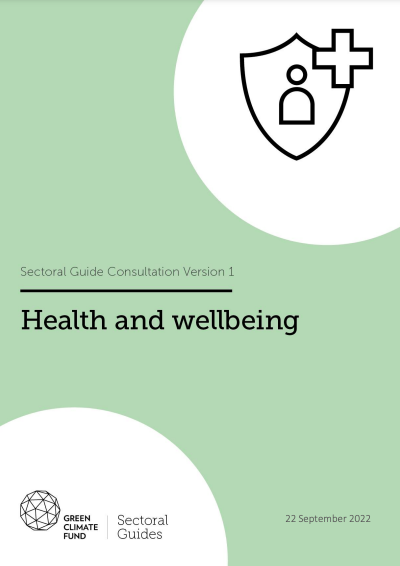Green Climate Fund (GCF), 2022

There are multiple threats to health and wellbeing from climate change. At 1-1.5°C of warming above preindustrial temperatures, rising temperatures increase the frequency and intensity of extreme events; and exacerbate malnutrition, vector-, food-, and water-borne infections, zoonotic diseases, and occupational and mental health consequences. Climate change also can jeopardize critical infrastructure (e.g., water and sanitation infrastructure); and destabilize systems that maintain population health (e.g., following floods or the effects of sea level risk in coastal cities). The impacts of climate change on desertification and biodiversity loss also have negative consequences for health and well-being.
To address these threats and continue to protect and promote human health and well-being in a changing climate, health systems, including healthcare services and supply chains, need to be climate adaptive, i.e., be prepared for and able to cope with changing climate-related hazards. Priorities in this sector are understood and noted in many National Determined Contributions (NDCs) but translating them into action with investment at scale requires overcoming significant barriers.
For a transformation towards climate adaptive, low emissions health systems, GCF had identified the following two paradigm shifting pathways for advancing the highest climate impact projects and programmes and supporting country needs: (1) Promoting climate-resilient, nature-positive health systems and services and (2) Facilitating climate-informed advisory and risk management services and community action. Key to GCF’s role in scaling up finance is mobilizing international private and public funding to systematically address barriers and reduce investment risks. Blended finance opportunities exist for climate information services, and for private health service providers, for adaptation as well as mitigation, and the deployment of innovative instruments can be used to mobilize public and private sector financing.
The sectoral guide draft was released for consultation between November 2021 and March 2022. The Secretariat received more than 156 suggestions and recommendations which are addressed in the current version of the guide. The sectoral guide will be submitted to the GCF Board for its consideration in 2022. In the meantime, GCF remains open to further feedback on this draft. For further inquiries please contact us via: sectoralguides@gcfund.org.



